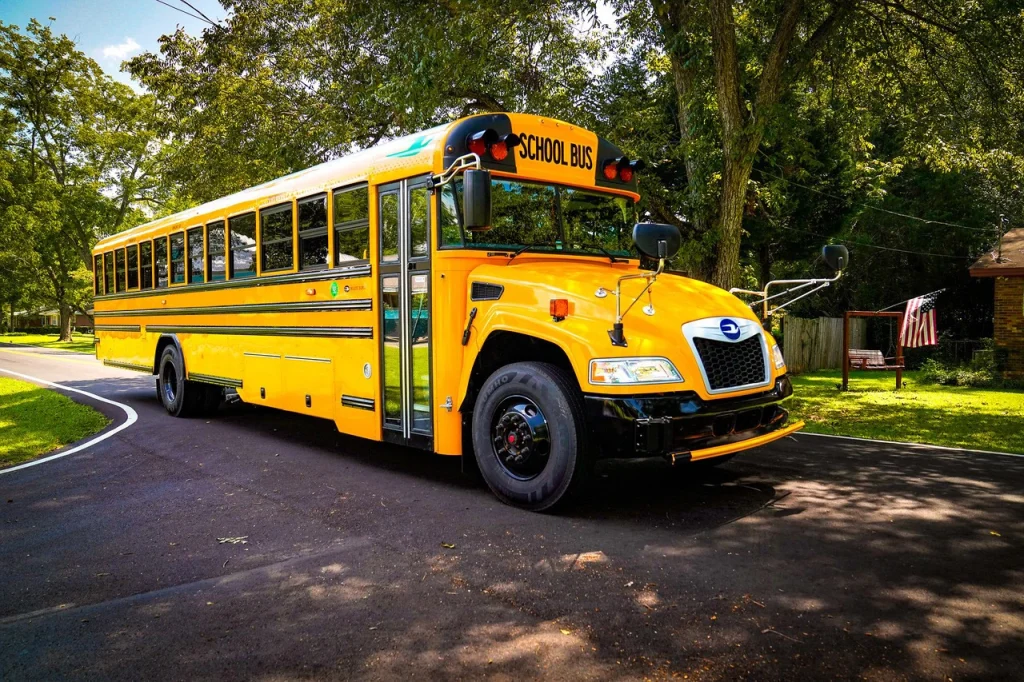Gwinn Schools Cut Emissions with Propane-Powered Buses

Gwinn Runs Cleaner
- Propane School Buses: 7
- Region: Michigan’s Upper Peninsula
- Funding Support: $42,793 Fuel Transformation Program Grant
- Benefits: Reduced operating costs, Lower emissions, winter reliability
Gwinn Area Community Schools Leads the Way in Clean Student Transportation in the U.P.
Gwinn Area Community Schools, located in Michigan’s Upper Peninsula, demonstrate that rural districts can lead the way in sustainability in the U.P.. With the addition of at least seven propane-powered buses, Gwinn is delivering safer, cleaner transportation to its students while cutting costs and lowering emissions.
Grant Support Fuels Cleaner Transportation
State Assistance through MFT Program
In 2022, Gwinn Area Community Schools received a $42,793 grant through Michigan’s Fuel Transformation Program. This funding supported the purchase of one of the district’s new propane buses, helping Gwinn reduce its reliance on diesel and accelerate its transition to low-emission technology.
The grant, administered by the Michigan Department of Environment, Great Lakes, and Energy, is part of a broader effort to replace old diesel school buses in the state of Michigan with low to no-emission units.
Why Propane Makes Sense in the U.P.
Cold Weather Performance and Emissions
Propane school buses are specifically designed for use in cold weather conditions. Unlike diesel engines, they don’t require block heaters or long idling times to start in winter, making them ideal for Michigan’s harsh Upper Peninsula climate. They’re also cleaner, with a lot fewer greenhouse gases and significantly less nitrogen oxides (NOx).

Cutting Costs, Cutting Emissions
Financial and Environmental Impact
According to the EPA, propane is considered a clean fuel and the most widely used alternative fuel in the U.S.
Gwinn’s propane buses improve local air quality and help the district save on fuel and maintenance. When factoring in upfront, fuel, and maintenance costs, Gwinn is projected to save $300,000 over the lifetime of its propane fleet.
Propane engines are simpler, cleaner, and require less maintenance than diesel engines and electric buses. Gwinn expects to cut carbon dioxide emissions by roughly 0.46 metric tons annually per bus.
A Small District Leading by Example
Clean Energy Leadership in Rural Michigan
With at least seven propane buses, Gwinn Area Community Schools sets a powerful example for other rural districts in the U.P. Their investment in clean fuel technology reflects a commitment to student health, budget-conscious operations, and long-term sustainability.
Looking to learn more about how Michigan schools are using propane to cut costs and emissions? Visit MiAutogas.com/school-bus to hear from real-world success stories and learn how you can receive up to $6,000 for converting your fleet to propane.


